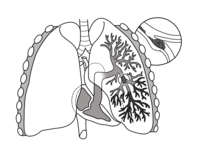
Effectiveness and Safety of Oral Anticoagulants in the Treatment of Acute Venous Thromboembolism: A Nationwide Comparative Cohort Study in France
Sign Up to like & getrecommendations! Published in 2022 at "Thrombosis and Haemostasis"
DOI: 10.1055/a-1731-3922
Abstract: Introduction: Data from clinical trials indicate that direct oral anticoagulants (DOACs) are non-inferior and safer than conventional therapy (low-molecular weight heparin followed by a vitamin K antagonist [VKA]) for treating venous thromboembolism (VTE), which includes… read more here.
Keywords: safety; venous thromboembolism; oral anticoagulants; treatment ... See more keywords

P1255Comparative safety and effectiveness of standard doses of apixaban versus dabigatran, rivaroxaban, and VKAs in non-valvular atrial fibrillation patients in France: the NAXOS study
Sign Up to like & getrecommendations! Published in 2019 at "European Heart Journal"
DOI: 10.1093/eurheartj/ehz748.0213
Abstract: Real-world data comparing all available oral anticoagulants (OAC) on a nationwide scale (i.e. in France: apixaban, rivaroxaban, dabigatran and vitamin K antagonists – VKAs) are lacking. In everyday practice, oral anticoagulants are often underdosed, which… read more here.
Keywords: rivaroxaban; safety; vkas; apixaban ... See more keywords

Comparative safety and effectiveness of rivaroxaban versus VKAs in patients with venous thromboembolism. A Danish nationwide registry-based study.
Sign Up to like & getrecommendations! Published in 2017 at "Thrombosis and haemostasis"
DOI: 10.1160/th16-10-0745
Abstract: The approval of rivaroxaban has changed the landscape of treatment of venous thromboembolism (VTE). Little is known about the effect of rivaroxaban compared with vitamin K antagonists (VKA), when used in the everyday clinical practice.… read more here.
Keywords: risk; rivaroxaban; safety effectiveness; vkas ... See more keywords

Comparison of transesophageal echocardiography findings after different anticoagulation strategies in patients with atrial fibrillation: a systematic review and meta-analysis
Sign Up to like & getrecommendations! Published in 2019 at "BMC Cardiovascular Disorders"
DOI: 10.1186/s12872-019-1209-x
Abstract: BackgroundHigh risk of embolic events exists in both patients with chronic atrial fibrillation (AF) and patients in the perioperative period of ablation (effective treatment for AF). Therefore, anticoagulant therapy is important. Oral anticoagulants can be… read more here.
Keywords: analysis; incidence lat; vkas; meta analysis ... See more keywords